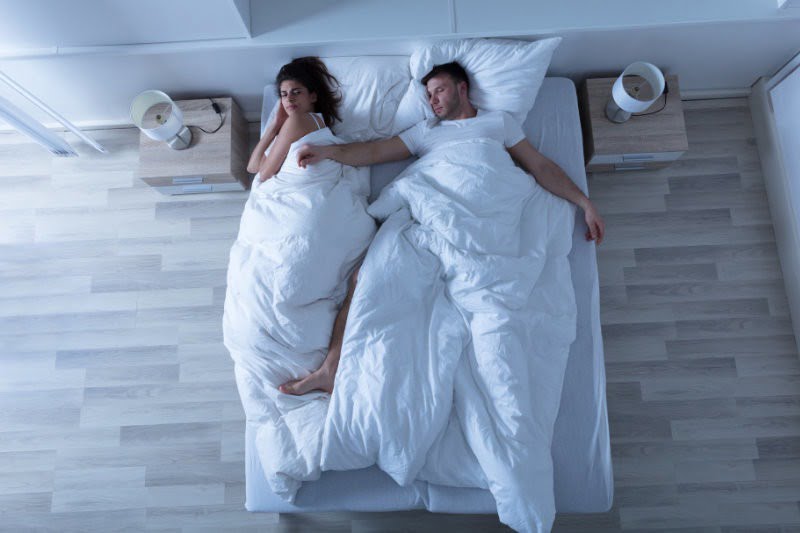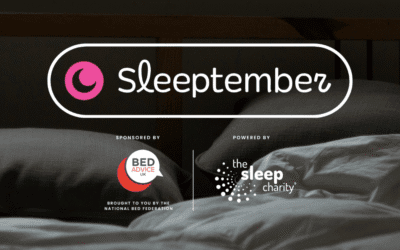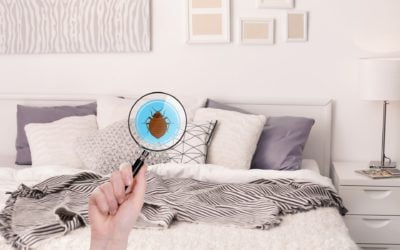The great sleep divorce is soaring, with nearly one in six (15%) British couples who live together now sleeping in separate beds. Almost nine out of 10 (89%) of these couples were doing so in separate rooms.
What is Sleep Divorce?
Couples choosing to sleep apart!
Supporting National Bed Month, our recent findings indicate that so-called Sleep Divorce is on the rise. A 2009 survey by The Sleep Council, which has now merged with The Sleep Charity, revealed that less than one couple in 10 (7%) had separate beds, suggesting the rate of separate sleeping has roughly doubled in the past decade.
Latest findings also show that of those who now sleep apart, 85% have done so for longer than a year with more than a third (38%) snoozing separately for more than five years.
Why do couples sleep apart?
Snoring is far and away the most commonly cited main reason for splitting up sleepers with slightly more men (38%) than women (36%) saying so.
Seventeen per cent of men and 10% of women said they prefer sleeping in a bed all to themselves while fidgeting is the main cause for one in 10 to take to a separate bed.
Nearly a quarter (24%) of those sleeping apart put it down to ‘other’ reasons while 5% said it was because they preferred a different kind of bed or mattress to their partner.
Interestingly, couples living in households without any children were more than twice as likely to kip independently (17%) than those with two children (8%).
Sleeping apart was noticeably more common among the over 55s (23%) with a quarter (25%) of retired people saying they had separate beds. And people in the Midlands (19%) were more likely to disconnect from dear ones at bedtime than anywhere else in the country. People living in Scotland were the least likely (9%) to go their separate ways to sleep.
More than half (56%) of those who had made the decision to take separate beds said it had improved their sleep ‘a lot’.
Is it healthy for couples to sleep apart?
While the results show quite a worrying rise in the number of ‘sleep divorces’, securing a good night’s sleep is a vital part of a healthy lifestyle – and for many, separate beds may be the only way to achieve that. Over half of our sample found it really helped.
Partner disturbance – snoring, fidgeting, duvet or bed hogging – can prove a major disruptor to sleep which may explain why a significant number of people simply enjoy having a bed all to themselves.
There are no rights and wrongs when it comes to sleeping arrangements and the older generation seems to be more accepting of this with many of them not only sleeping in separate beds but separate rooms.
The survey, as well as our own experience of the market, also shows that many couples have differing bed or mattress preferences from their partner – although there are solutions available for this.
The underlying message has to be that people will do whatever it takes to get a great night’s sleep – and that has to be a good thing. Nothing beats a truly comfortable, energising, uninterrupted kip in bed for feeling and looking great.
*The ‘Separate Beds’ research was conducted by YouGov on behalf of The National Bed Federation between 20th – 21st January 2020. All figures, unless otherwise stated, are from YouGov. Total sample size was 2054 adults. The survey was carried out online. The figures have been weighted and are representative of all GB adults (18+).





0 Comments